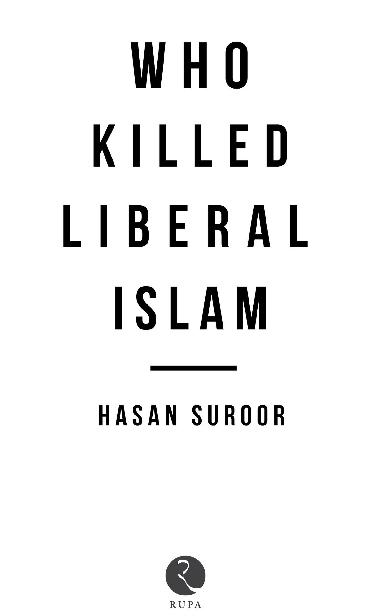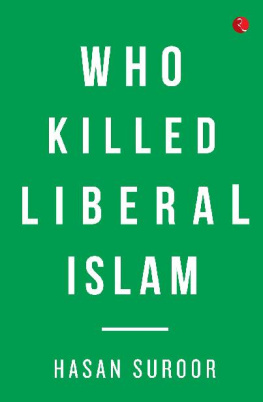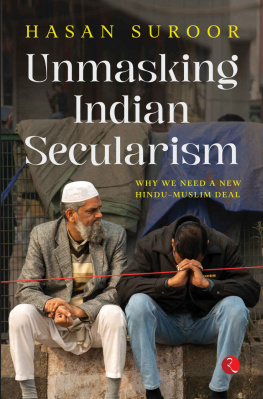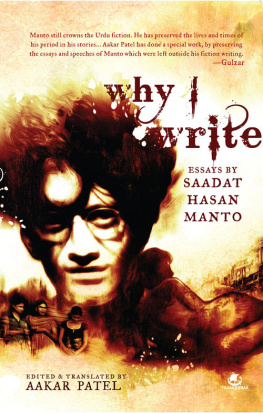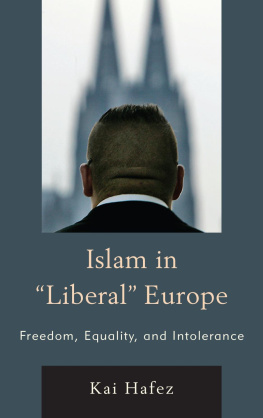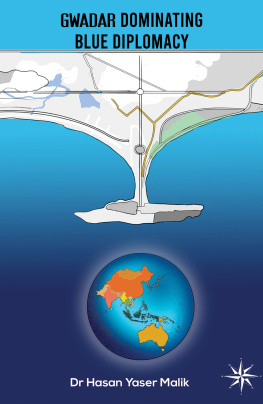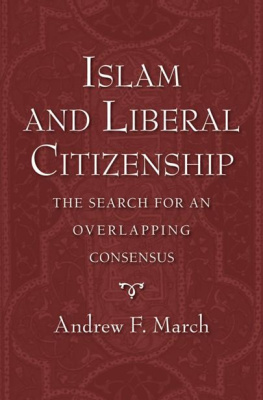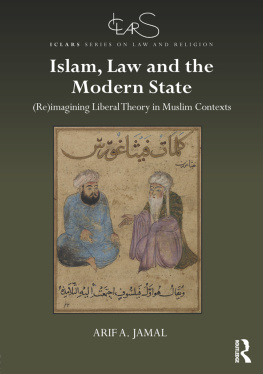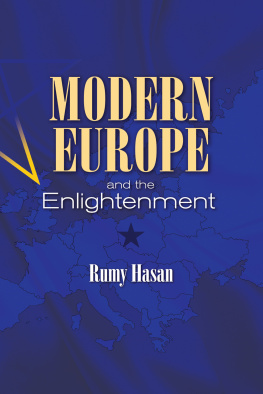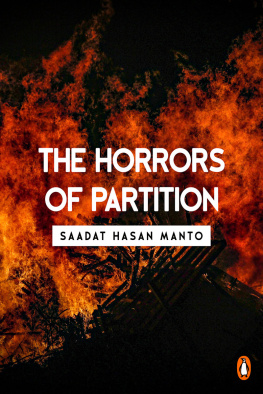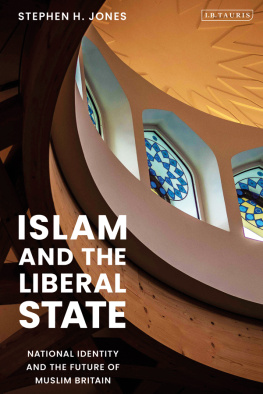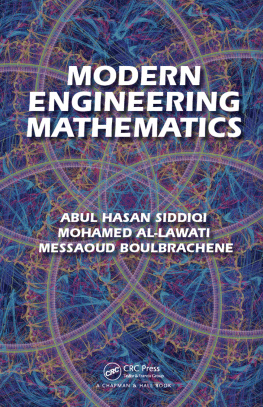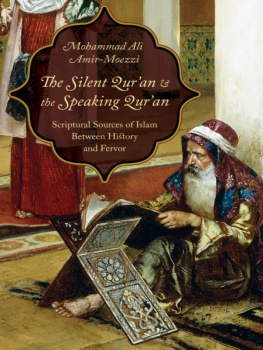Published by
Rupa Publications India Pvt. Ltd 2019
7/16, Ansari Road, Daryaganj
New Delhi 110002
Copyright Hasan Suroor 2019
The views and opinions expressed in this book are the authors own and the facts are as reported by him/her which have been verified to the extent possible, and the publishers are not in any way liable for the same.
All rights reserved.
No part of this publication may be reproduced, transmitted, or stored in a retrieval system, in any form or by any means, electronic, mechanical, photocopying, recording or otherwise, without the prior permission of the publisher.
ISBN: 978-93-5333-593-9
First impression 2019
10 9 8 7 6 5 4 3 2 1
This book is sold subject to the condition that it shall not, by way of trade or otherwise, be lent, resold, hired out, or otherwise circulated, without the publishers prior consent, in any form of binding or cover other than that in which it is published.
Liberalism is a lonely, moral stance.
Martin Luther King, Jr
Contents
Islam at a Glance
Origins
Founded in the seventh century ce by Prophet Mohammad after he received divine revelations from Allah, it is the youngest monotheistic religion. It is based on the belief that there is only one God, and that Mohammad is the messenger of God.
The word Islam literally means surrender (to the will of Allah.) Islam originated in Mecca and Medina and gradually spread across Arabia and beyond.
Muslims in Numbers
For all the negative perceptions and controversies that surround Islam, it is the worlds second largestand fastest growingreligion with approximately 1.8 billion followers spread across seven cultural and geographical regions. Nearly a quarter of the world is Muslim. By 2050, Islam is predicted to catch up with Christianity worldwide, according to Pew Research Center.
India is home to 180 million Muslims making them the worlds third largest Muslim community. Indonesia is the largest Muslim-majority country, followed by Pakistan. Only 20 per cent of the global Muslim population lives in the the Middle East where Islam was founded. The West has a large Muslim diaspora, and despite widespread Islamophobia, their number is growing.
Sunni-Shia Divide
There are two broad segments in Islam: Sunnis and Shias, and most Muslims belong to one of the two. Sunnis are the dominant group representing almost 90 per cent of Muslims. Islams holiest sitesMecca and Medinaare controlled by Sunnis.
Iran is the largest Shia-majority country followed by Iraq.
The Shia-Sunni rift is the biggest and longest-running divide in Islam, going back to its early years. But the origins of this division is so arcane that, let alone non-Muslims, even many ordinary Muslims struggle to explain it.
What started off as a succession feud after Prophet Mohammads death has come to define Islam for the modern world, thanks to the geopolitical dimensions it has taken, with a Shia-Iran and a Sunni-Saudi Arabia competing for the leadership of the Muslim world. And both have their respective Big Power patronsthe Saudi-Sunni alliance is backed by America, and Iran by Russia. A rather obscure centuries-old religious rift has become a convenient peg on which to hang todays many disasters in the Middle East, according to British academic John McHugo in his book, Concise History of Sunnis and Shiis .
Sharia
In Arabic, the term literally means path; path to water or the way to a watering holeguiding nomadic people to a source of drinking water in the desert.
But after the advent of Islam, its followers started using it in the sense of a guide to law and morality. Broadly, it has come to mean Islamic law derived mainly from the Quran, the Sunna (the actions and authentic sayings of Prophet Mohammad), Ijma (consensus of legal scholars), and Qiyas (analogical reasoning.)
It is often described as Gods Law and considered immutable by conservative Muslims. But liberals question the divine status accorded to Sharia. According to renowned liberal Islamic scholar Ziauddin Sardar, Sharia is not a Quranic concept and the term occurs only twice in the Quran as a reference to guidance that God has provided to all nations and communities through His prophets... In neither case can we infer that the term Sharia represents a codified canon of unchanging law designed to exist for all time. ( Reading The Quran , Ziauddin Sardar)
The interpretation of Sharia has long been the subject of a divisive debate between traditionalists and reformists. Historically, Sharia was interpreted by muftis and their opinions (fatwas) were taken into account by judges appointed by the rulers of the day. In modern times, Sharia-based criminal laws have been incorporated into Western-inspired secular laws, with Sharia being restricted to family laws variously called Personal Status Laws and Muslim Personal Law.
Militant Islamists such as the Islamic State, Taliban, and
al-Qaeda want a return to pure Sharia, including reinstatement of stoning for adultery though there is no mention of stoning in the Quran. In India, Muslim opposition to changes to the Muslim Personal Law hinges on fears that it is an attempt to undermine Sharia.
Important Rituals
1. Shahadah A profession of faith.
2 Salat Prayer five times daily.
3 Zakat Alms giving.
4 Sawm Fasting.
5 Hajj Pilgrimage to the Holy city of Mecca.
INTRODUCTION
In my last book, Indias Muslim Spring: Why Is Nobody Talking About It? I quoted a Hindu friend telling me that the idea of a liberal Indian Muslim was a misnomer.
I have yet to meet a devout Muslim who doesnt have fundamentalist views. And mind you, Im 70-plus and have known at least three generations of Muslims, he said while profusely apologizing for his bluntness.
Even to mea strong critic of Muslim fundamentalismhis remarks sounded too much like a sweeping generalization about a 180 million-strong diverse community. And had I not known him as well as I dida progressive man and a Muslim well-wisherI would have suspected him of anti-Muslim prejudice and stereotyping. Indeed, some readers accused me of providing a platform to Islamophobic voices; some even suggested I had made up the quote to sex up the text. But, come to think of it, he was not really way off the mark. Where he was wrong was in portraying all devout Muslims as fundamentalists, but he was dead right in lamenting a dearth of liberal Muslims. A liberal Indian Muslim is indeed a rarity, judged by the generally accepted standards of liberalisma respect for human rights, free speech, dissent, tolerance of individual freedoms and lifestyle choices, gender equality, etc.
The frequently asked question, Is there such a thing as a liberal Indian Muslim at all? is a legitimate one to ask despite its offensive and provocative tone. Muslims, including many moderates, though, remain in denial. There are few things that irritate them more than being asked about the crisis of liberalism in the community. Almost reflexively, they become defensive, calling it an attempt at stereotyping them. A familiar line is that liberal Muslim voices are deliberately suppressed to create a perception that there are no liberal Muslims. The media in particular is seen as the chief villain with its penchant for playing up controversial fundamentalist views in the garb of news. As a media person, I admit there is a bias but it is not so much about wilfully suppressing liberal voices as about playing up potentially headline grabbing views. Simply because controversy sells. That is the nature of the beast: it thrives on sensationalism.

